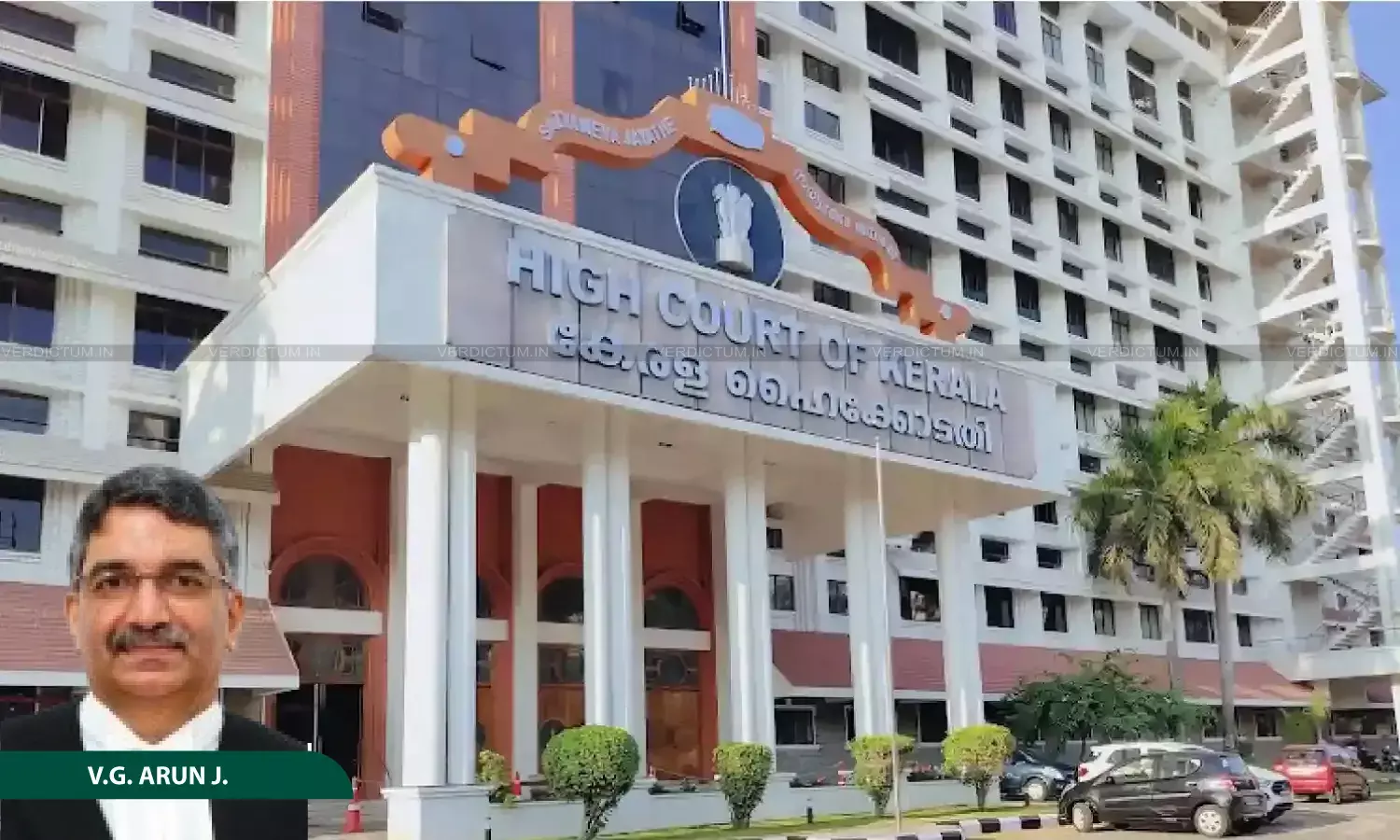“Only The Wearer Knows Where The Shoe Pinches”: Kerala High Court Refuses To Quash SC-ST Case Against Principal Who Allegedly Told Dalit Colleague He Had A “Manufacturing Defect”
The Court said that whether the insulting remark could be perceived as something done within public view could only be decided based on evidence.

Justice V.G. Arun, Kerala High Court
The Kerala High Court has refused to quash proceedings against a college principal accused of making a caste-linked remark to a Dalit colleague during a staff meeting.
A Single Bench of Justice V.G. Arun observed, “To put it pithily, only the wearer knows where the shoe pinches. Therefore, while deciding whether an insult or intimidation is on account of the victim belonging to the Scheduled Caste or the Scheduled Tribe, the context and the scenario is of utmost importance.”
The Court added, “…the Scheduled Castes in India have faced systemic ignominy like exclusion, untouchability and violence rooted in centuries old caste hierarchy. They had restricted access to resources, land and quality education. Even with the protective provisions in the Constitution and enactments like the Scheduled Castes and the Scheduled Tribes (Prevention of Atrocities) Act, the discrimination and ostracization has not been fully eradicated. One cannot also be oblivious of the fact that the tolerance level of persons belonging to the vulnerable sections will not be the same as persons who have not suffered any such ignominy.”
Senior Advocate Abraham Vakkanal appeared for the Petitioner, while Advocate Thomas J. Anakkallunkal appeared for the Respondents.
Brief Facts
The Petitioner, a college principal, is the accused in a criminal case registered under Section 3(1)(r) of the Scheduled Castes and the Scheduled Tribes (Prevention of Atrocities) Act, 1989. A complaint was filed by Respondent No.3, a faculty member belonging to a Scheduled Caste.
According to the complaint, during a staff meeting, the Petitioner questioned Respondent No.3 for using his mobile phone. When the Respondent No. 3 replied that he was taking notes, the Petitioner allegedly said, “You are behaving like this because you have a manufacturing defect.” The Respondent No.3 replied that his parents were educated and respectable, to which the Petitioner allegedly added that he knew the family background and that disclosing it would be a matter of shame. It was alleged that these statements were made in front of others, with the intent to humiliate on account of caste.
The Petitioner moved the High Court seeking quashing of the proceedings, submitting that the remarks were not caste-linked, that the incident took place in a staff room and not within public view, and that the complaint was false and malicious. Respondent No.3 opposed the plea, contending that the remarks were clearly caste-based and that the FIR disclosed a triable offence.
Reasoning of the Court
The Court noted that whether the alleged remark was made with reference to caste identity and whether it was made within public view were both matters requiring evidence, and rejected the argument that the FIR disclosed no offence.
Referring to the statutory requirement under Section 3(1)(r), the Court observed, “All insults or intimidations to a person will not be an offence under the Act unless such insult or intimidation is on account of victim belonging to Scheduled Caste or Scheduled Tribe.”
On the argument that the statement was not made within public view, the Court observed, “Public view generally means something that is visible and accessible to the general public. It implies that the object or activity in question can be seen and/or experienced by a significant number of people, rather than being hidden or private. Therefore the expression 'within public view' would be taken as any activity or event which is visible or audible to persons other than the direct participants. Therefore the question whether the insulting remark made inside the hall can be perceived as something done within public view can only be decided based on evidence.”
Taking note of the Petitioner’s contention that the FIR was an abuse of process, the Bench said, “It is also the settled law that for the purpose of exercising the inherent power under Section 482 of Cr.P.C, the High Court cannot conduct a mini trial or microscopic scrutiny of documents.”
Consequently, the Court dismissed the petition, while observing that whether the insulting remark made inside the hall could be based on evidence
Cause Title: Dr. C. M. Kusuman v. State of Kerala & Ors. (Neutral Citation: 2025:KER:44735)
Appearance:
Petitioner: Senior Advocate Abraham Vakkanal; Advocates Paul Abraham Vakkanal, Vineetha Susan Thomas, Roy P. Kuriakose
Respondents: Senior Public Prosecutor Pushpalatha. M.K; Advocates Thomas J. Anakkallunkal, Jayaraman S., Anupa Anna Jose Kandoth, Nirmal Cheriyan Varghese, Litty Peter


